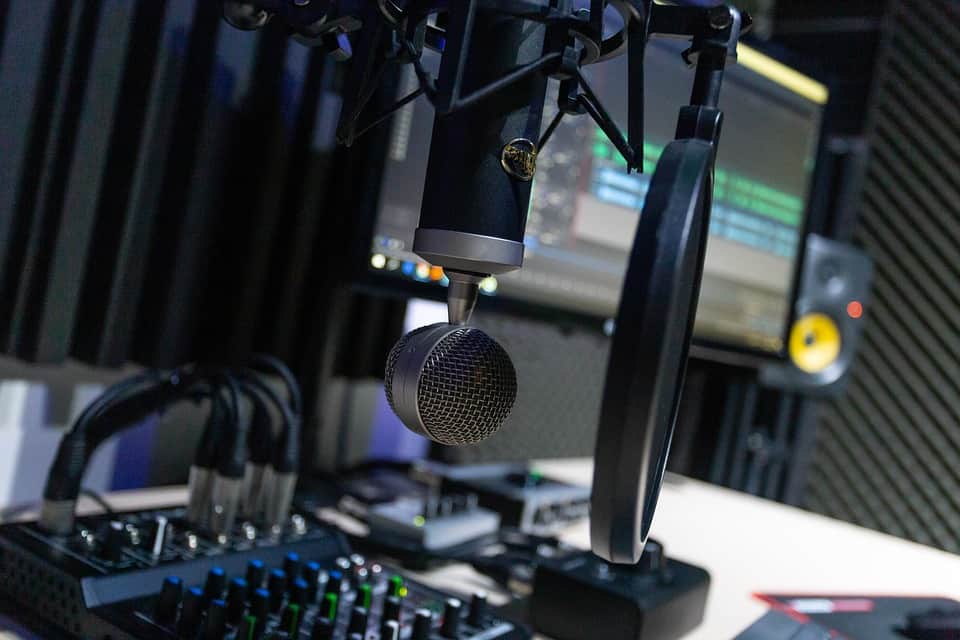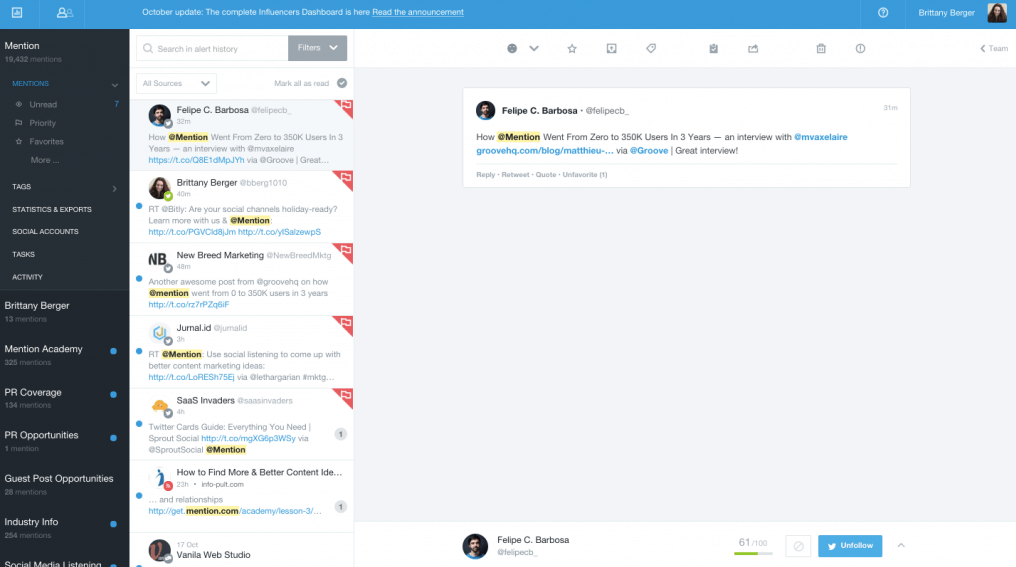Podcast sponsorships are the simplest and most lucrative way to monetize a podcast. You know it’s important to develop your podcast a bit before you hunt for sponsors, but when is the right time to start? How do you know if your podcast is ready for sponsors?
Truthfully, there’s no clear answer here. We wish we could give you a simple milestone to achieve, like “2,000 downloads on one episode” or “after you release 10 episodes.” But every podcast and audience is different.
In fact, sponsors are different too. Some will work with you if you only have a couple thousand downloads. Others won’t talk to you until you’re putting up massive numbers.
Nine Things Your Podcast Needs Before Pitching Sponsors
So how do you know if you’re ready to bring on a sponsor? Before you starting hunting for sponsors, make sure you satisfy these conditions.
You understand your audience
Before you can choose a sponsor for your podcast, you need to have a clear understanding of your audience. You need to know what they like and what they find valuable. You need to know what they are willing to spend their money on.
Most importantly, you need to know which kinds of advertisements won’t drive them away. It’s very easy to erode your own listenership with the wrong kinds of promotions.
For instance, let’s say you host a podcast about personal finance. You advocate a conservative approach to handling money. It wouldn’t make sense, in this case, to promote a sports betting website or a foreign currency exchange course. Those kinds of products wouldn’t align with your listeners needs and preferences.
If you don’t think you know your audience well, spend some time talking with them. Engage with them on social media, encourage them to reply to your email marketing, and collaborate in online communities. Find out what makes them tick.
You’re prepared to dilute your audience
Some people will stop listening to your podcast as soon as you get sponsors for your podcast. They may understand why you got a sponsor, and they may not blame you for it, but they just don’t want to sit through ads.
You’ll undoubtedly lose some listeners after your first ad. It doesn’t matter how well you incorporate ads or how sparingly. Some people will leave you.
This means you aren’t ready to get sponsors for your podcast unless you’re prepared to lose some people. If you fret every day over the size of your audience, you probably aren’t ready to lose some of them. It’s impossible for us to tell you how many you will lose, but there will be some.
Before you sell your first ad, ask yourself how much you need to earn from that ad to compensate you for the listeners you will inevitably lose. For a lot of podcast hosts, that number includes how much money they need to make to give their podcast more of their attention.
For instance, you might say “I need to make $600 per episode in order to drop my full-time job down to part-time. Then I could give the podcast more of my time to grow it to compensate for my lost listeners.”
Your sound quality is perfect
This should go without saying, but we didn’t want to leave it out. Sponsors don’t want to associate their brands with poor productions, so you’ll need to eliminate the most obvious sign of amateurism: Poor audio.
Your audio should be crisp and clear without echoes, buzzes, or unidentifiable noises. Your voice should be rich and easy to understand. Your listeners should never have to rewind a few seconds to listen closely to figure out what you said.
If your listeners can’t understand you, then they can’t understand your advertisement. And that is completely unacceptable to sponsors.
Learn more at 21 Podcast Recording Tips For Polished Episodes.
You have good reviews
Potential podcast sponsors certainly care about the number of downloads you get for each episode, but that’s not all they care about. They’re also concerned about the quality and engagement of your content. They don’t want to align their brand with yours unless they are sure you have a good reputation.
You can be sure that potential sponsors will browse your ITunes and Google Play reviews. They will also poke around your social media profile to see what your listeners and fans have to say.
Comb through your reviews. Read all of the comments on your social media post. You may even want to search for your name using a social media listening tool. Your goal is to find out what people say about you online.
With a tool like Mention, you can look up every reference to your podcast.
If you find any incorrect or especially hurtful comments, consider reaching out to the reviewer to see if there’s something you can do to fix their problem. See if there’s anyway they could remove their review but don’t offer to pay them to take it down.
You have accurate and honest analytics
It’s tempting to inflate your own numbers a bit when you try to get sponsors for your podcast. You had four thousand downloads one month, so what’s the harm in saying you get four thousand downloads every month?
A lot, actually. You can’t begin a healthy relationship with a sponsor based on deceit. If potential sponsors determine that you’re lying about the size of your listenership, they will immediately cease contact and find somewhere else to advertise.
How do they know if your numbers are true? They may use third-party tools to estimate your download numbers or ask you to give them screenshots from your analytics.
You have the time to work with your sponsor
Since you are new to podcast advertising, your sponsor will expect a generous amount of communication on your part. They will expect you to quickly answer their questions and resolve their concerns.
This is especially important if you are working with a first-time sponsor. They will be just as nervous about the relationship as you are.
If you don’t have the time or energy to collaborate effectively with the sponsor, however, the relationship will eventually erode. You may be busy producing episodes or working another job, but your sponsor wants at least some of your attention.
You have a clear offer
Your sponsors need to know what they get from their investment. You need to carefully describe the transaction so they can measure how well you deliver on your promises.
You may not be able to give hard guarantees (like “You’ll get 10,000 sign ups from this ad!”), but you can outline what you’ll do to help their brand. For instance, you might offer:
- Pre-roll, post-roll, or mid-roll advertisements
- Mentions on your social media profiles or newsletter
- Promotions on your site and social media channels
- Logo display on your website
If you aren’t sure what else you can do to help promote your sponsor, you simply ask them what they’re looking for. They may have some unique needs you can help with. Or they might be satisfied with just your pre-, post-, or mid-roll mentions.
Most importantly, be honest about your audience. Give your sponsor as much information as possible about the people who listen to your show. Help them decide if your audience is right for their brand. Don’t be afraid to turn down a sponsor if you don’t think your listeners will respond well to the ads.
It helps to have a sponsorship guide like this to hand out to potential sponsors.
You understand how podcast advertising works
Before you start negotiating with advertisers, it’s important to understand how advertising works in this industry. If you don’t understand what you’re selling, potential sponsors won’t have confidence that you can properly promote their products.
Generally speaking, the deal between you and your sponsor is usually based on cost per mille (CPM), which is a fixed price per 1,000 downloads. If you charged $50 for every 1,000 downloads, the sponsor would pay you $250 for an episode that got 5,000 downloads.
In some cases, sponsors are more concerned about their cost per acquisition. This refers to the number of sales or sign ups they get as a result of the ad. The sponsor might give you a coupon code or a special URL. Whoever uses the code or URL counts as one of your referrals. You get paid based on the number of referrals.
When it comes to pricing, there aren’t any industry standards. It depends on how much your sponsor is going to spend, and what other opportunities they could invest in.
Learn more at 42 Sponsorship Terms You Should Know and How To Get Podcast Sponsors.
Summary
Ultimately, the decision on when to start pitching sponsors is up to you. If you’re like most podcast producers, you’ll never feel fully ready. You’ll always feel like your show isn’t “good enough” for someone to use it to advertise.
Just remember that the worst a potential sponsor is “no.” It may take 20, or 50, or 100 rejections until someone agrees to sponsor your show. Keep producing quality content and nurturing your audience, and eventually sponsors will bid over themselves to advertise with you.
Not sure if sponsorships are the right way to monetize your podcast? Learn about some more monetization techniques at How to Promote a Podcast: 2020 Ultimate Guide.





